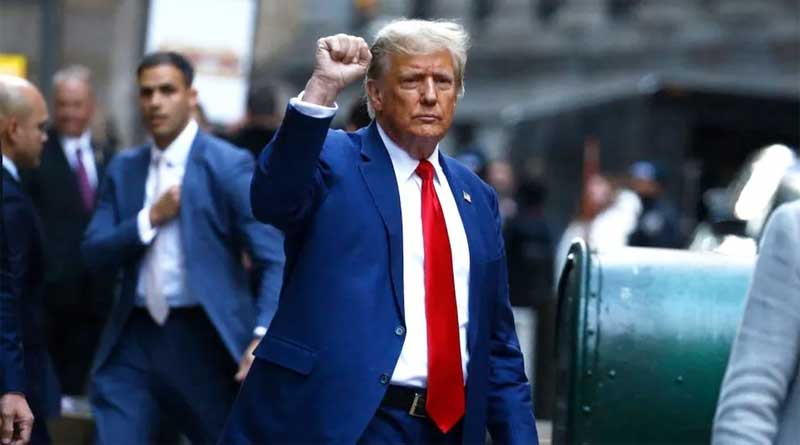Donald Trump’s failed immunity appeal is a strategic win
Donald Trump has been handed a defeat in court – but one that comes with a generous helping of victory.
An appeals court ruled that Mr Trump is not immune from criminal prosecution for acts committed while he was president.
The time it took to issue that decision, however, has indefinitely delayed Mr Trump’s federal trial related to the 6 January 2021 attack on the US Capitol.
So while Mr Trump did not successfully assert sweeping new presidential powers to act with impunity while in office, the tentative 4 March start date in Washington DC has been removed from the federal court’s calendar.
And there is no indication of when it might reappear.
This is in keeping with the former president’s strategy of throwing sand in the gears of the judicial process whenever possible, according to Neama Rahmani, a former federal prosecutor.
“It’s in Trump’s interest to delay the case until after the November election,” Mr Rahmani said. “If he wins control of the White House, a sitting president can’t be prosecuted.”
If delay is the goal, there are a few steps Mr Trump’s legal team could now follow.
Read This: Donald Trump denied instant win he sought in New York civil fraud trial
Donald Trump
They might request that the full 11-judge DC Circuit Court of Appeals review and reconsider this case. That is unlikely to succeed, however, as six of the eight remaining judges would have to back that decision and obliging such a request is rare.
The appeals court, meanwhile, has ruled that the 6 January case can proceed while such a request is considered. Perhaps in the hope of avoiding further delay.
But Mr Trump has other options at his disposal.
He can turn to the Supreme Court, which would have to decide whether to review the case or let the lower-court decision stand. They can also decide whether to put the 6 January trial on hold in the meantime.
That appears the likely route, as the appeals court has given the Trump legal team until 12 February to prepare its Supreme Court request.
That is where there are further opportunities for delay or for the trial to get back on track.
If the Supreme Court refuses to hear the case, the election interference case could return to its normal schedule. But if it agrees to do so, that all but guarantees that a trial would take place under the shadow of election day – at the very earliest.
It is a prospect that may prompt Judge Tanya Chutkan, who is presiding over the trial, to shelve the case until Americans can cast their ballots in November.
Source: BBC


